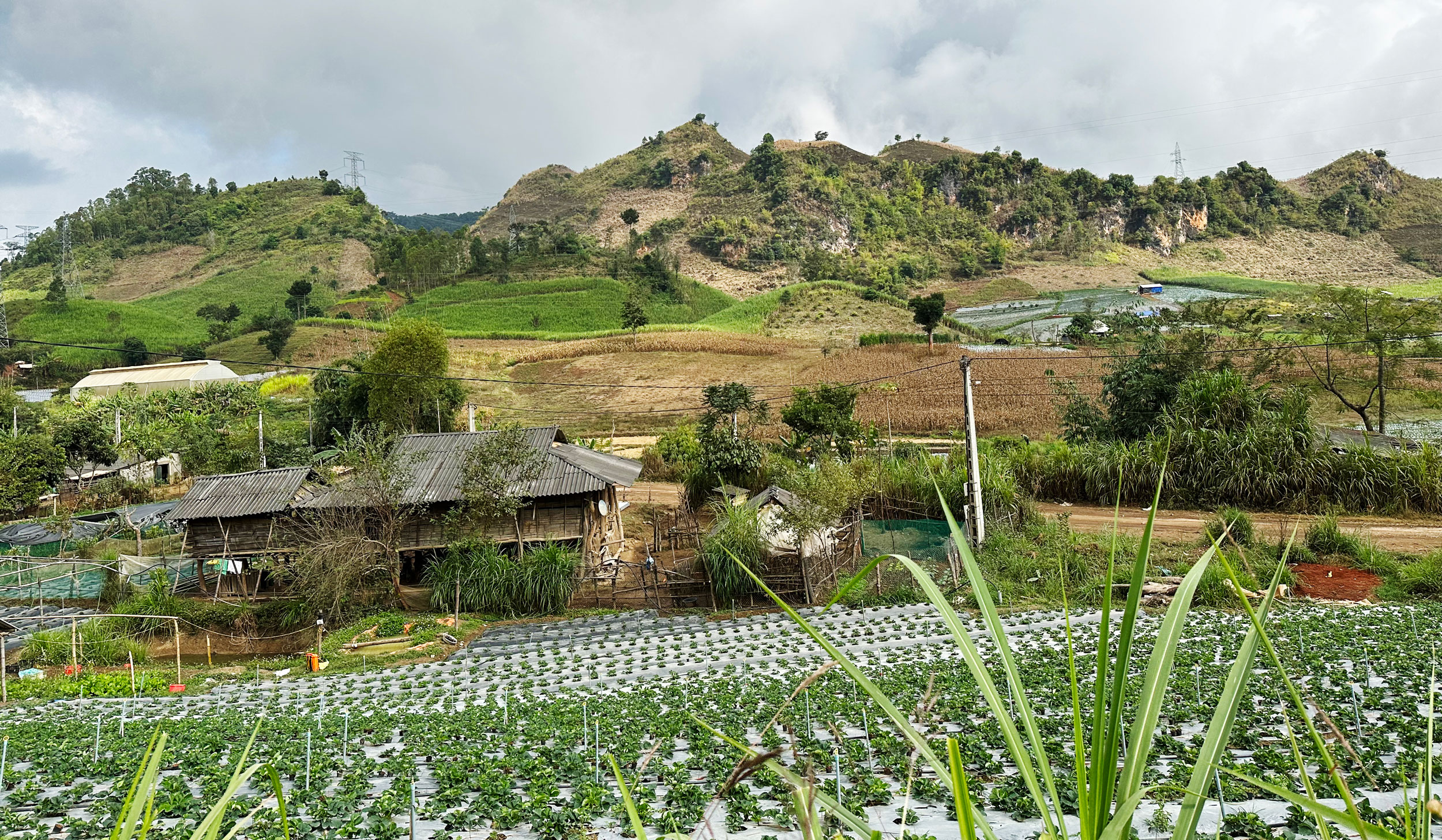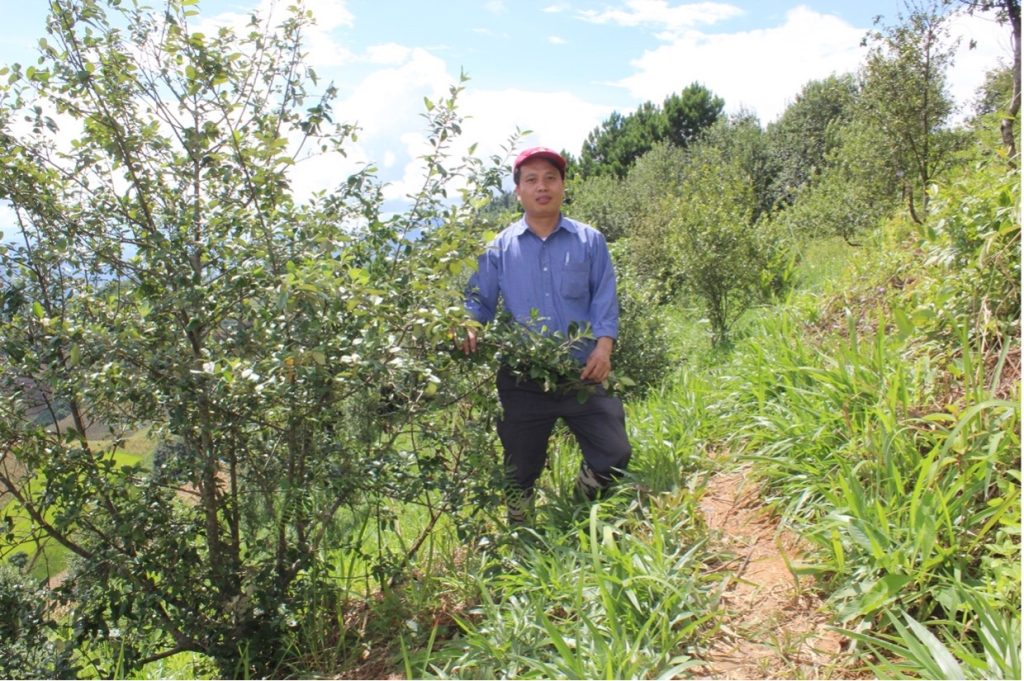
Upland agroforestry for incomes and carbon sequestration in Vietnam
51%
49%
Partner contribution
$ 392,100
DFAT contribution
$ 391,500
Total Value
$ 783,600
Start: November 2022 - End: November 2024

Greenfield Consulting and Development
Greenfield Consulting and Development is a research-based company providing consulting services in natural resource management, GIS remote sensing and energy saving solutions in Vietnam.
The Forest Science Centre of Northwest (FSCN) Vietnam
The Forest Science Centre of Northwest (FSCN) Vietnam is part of the Vietnamese Academy of Forest Sciences, Vietnam’s principle national research organisation for forestry. FSCN undertakes forestry scientific research in Vietnam’s northwest.

The University of Queensland
The University of Queensland is an Australian research university with extensive research and work experience in forestry, forest ecology, agroforestry and management and associated land uses in the Asia-Pacific region.

Son La Department of Agriculture and Rural Development
Son La Department of Agriculture and Rural Development is supporting this partnership.

Co Noi Agroforestry Cooperative
Co Noi Agroforestry Cooperative is supporting this partnership.

Australian Department of Foreign Affairs and Trade
The Australian Department of Foreign Affairs and Trade works with international partners and other countries to tackle global challenges, increase trade and investment opportunities, protect international rules, keep our region stable and help Australians overseas.
A partnership to generate long-term, sustainable incomes for small-scale farming households through producing timber and fruits from scattered tree planting on sloping cropland in Son La province, Vietnam. Tree planting on sloping land can absorb greenhouse gases which can create additional benefit streams for communities through carbon credits. These practices also reduce soil erosion and land degradation and improve long-term benefit such as biodiversity and agricultural productivity.
Context
Sloping land crops, such as maize, cassava and upland rice, are very popular in the mountainous regions of Vietnam and provide income and food for thousands of families. However, growing these monoculture crops on sloping land can have negative impacts on environment such as severe soil erosion and reduced soil fertility, can also reduce biodiversity and carbon sequestration, and are highly labour intensive, particularly for the women, including ethnic minority women, who provide most of the labour and work in sometimes harsh conditions.
Many upland crops are planted on sloping land, without proper terraces or contour banks, which can lead to surface layer erosion, land degradation and, ultimately, decreased crop productivity. Agroforestry systems that mix fodder and crops with timber trees can help overcome these cultivation problems on sloping land.
Forestry and agroforestry are among the most cost-effective options for absorbing greenhouse gases yet, to date, there is a lack of forestry or agroforestry carbon projects registered to international voluntary carbon standards in Vietnam. Access to quality, reliable monitoring, reporting and verification (MRV) systems and carbon market expertise are persistent barriers to voluntary carbon market registration, and there are few existing resources building Vietnamese stakeholder’s project readiness capacity.
About the initiative
The partnership aims to assist 500-800 farmers to plant 100,000 scattered timber and multi-purpose trees (providing income opportunities from both fruits and timber) on upland fields. Farmers will be trained to plant, tend and monitor the trees, will be supported in the sale of any carbon credits generated, and will be beneficiaries of all streams of income the trees generate.
Improving landscapes and livelihoods
The fast-growing, high-value trees offer an enduring alternative income stream for farmers and prevent soil erosion, runoff and degradation. 100,000 trees can also store up to 300,000 tonnes of CO2 equivalent and generate around 300,000 tonnes of carbon credits over a 30-year period. The initiative will also generate increased income for farmers, from the sale of timber, fuelwood and carbon credits.
Building carbon markets capacity and enabling access
The partnership will aim to increase technical and institutional capacity for forestry and agroforestry carbon projects in Vietnam through training project staff, developing a modern and participatory MRV approach, and upgrading and improving an existing smartphone app to allow farmers and community members to locate their trees on a GIS database. These activities will empower smallholder farmers to explore access to carbon markets as an additional income stream.
Key contributions from partners:
- Greenfield Consulting and Development is developing a geo-database for participating farms, co-developing and training stakeholders to use the participatory MRV system, and upgrading the smartphone app.
- The Forest Science Centre of Northwest Vietnam is selecting and providing seedlings of appropriate tree species for each site, conducting planting and tending training, and supporting measuring and monitoring of tree growth.
- The University of Queensland is undertaking research, developing the participatory MRV system, developing social and environmental safeguards, developing project documents to comply with verification standards, and providing technical training for all project partners.
- Australian Department of Foreign Affairs and Trade provides catalytic funding and can offer gender expertise to strengthen social and commercial impacts, connection to an extensive network, support to capture and report social impact, and national and global recognition.

Photo: Dr Tiep Van Hoang, Director, FSCN.
Hear from our partners:
“With the support of the BPP partnership, we hope to build one of the first digital traceability platforms in the Vietnam forestry sector that allows carbon buyer to track the tree growth process down to individual household, from nursery to plantation site, and continuously observe the tree growth on an annual basis. This platform will bring the carbon buyer closer to the farmer, facilitate a more transparent verification process and create opportunities for local government, farmers, and carbon buyers to work together based on highly accurate and verifiable data.” Dr Anh Viet Hoang, Team Leader, GFD
“University of Queensland (UQ) experts will help local communities to develop project documents following Gold Standard’s requirements. UQ will help project’s local partners strengthening their capacity in carbon project development, monitoring, reporting, verification, and validation. UQ experts will also conduct training courses for national, provincial and local staff in project development and MRV to comply with international carbon standards.” Dr Sang Phan, Research Fellow, University of Queensland
“FSCN has long-term experience in research and development of forestry and agroforestry tree species in North West of Vietnam. We will help local communities to select suitable and high-value tree species based on their interests. We’ll collect high quality seeds and produce seedlings for scattered tree planting for the project. Several researchers of our centre are Thai ethnic minority – the major ethnic group in the project’s villages. They will be possible to work effectively with local communities in their own language. FSCN will conduct training courses on scattered tree planting and management to secure long-term success of tree establishments.” Dr Tiep Van Hoang, Director, FSCN.
“Son La province has an ambitious scattered tree planting plan to serve the 1 billion trees planting program of the Prime Minister of Vietnam. This project is completely aligned with the provincial policy on tree planting, improve local livelihoods and increase ecosystem services of forestry and agroforestry systems. We’ll strongly support for the success of the project and hope its successful lessons can be extended to other upland agroforestry systems in Son La province.” Mr Tien Dung Tran, Deputy Director, Son La DARD.
“Monoculture crops on sloping land have negative impacts on soil fertility. Additionally, Mai Son district has policy to plant trees along the borders between different lots for better boundaries and provide tree’s products. We commit a close collaboration with the project. We will help project’s partners to convince local communities on the multiple values of planting scattered trees.” Mr Phạm Bá Tính, Chairman, Co Noi Commune People Committee.
